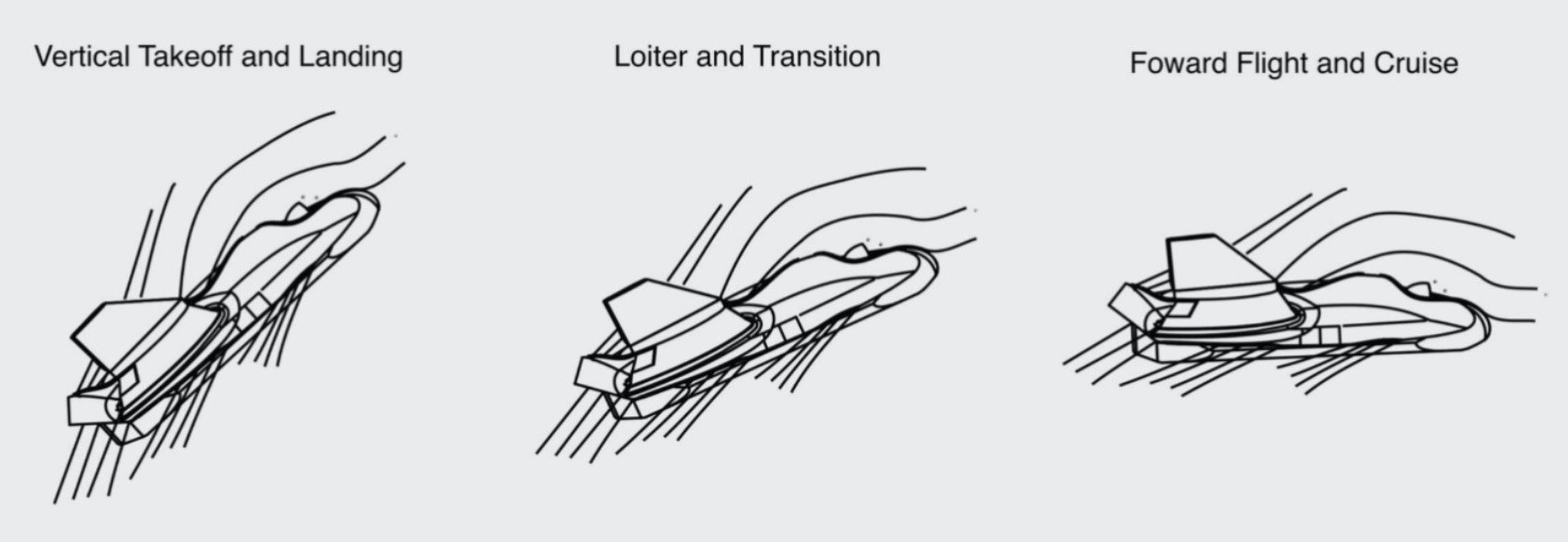
How It Works
SpyDar created an innovative VTOL and propulsion system called the Multi-Ducted Angled Rotor (M-DAR).
It consists of an array of fixed forward-pitched ducted fans. This lowers the angle of attack of the airstream in forward flight, which reduces drag and increases lift.
The increased vertical cross-section further increases hover flight stability by using differential thrust for attitude control.
With M-DAR’s fixed-in-place duct design, mechanical complexity on an aircraft is reduced compared to other VTOL approaches.
Airflow
SpyDar has demonstrated VTOL and forward flight capability for Group 1 & 2 M-DAR UAVs.
Two CFD analyses supports high-lift & low-drag designs. Airflow is more streamlined and efficient in forward flight. (M-DAR on bottom)

M-DAR Characteristics
VTOL
Vertical TakeOff and Landing (VTOL) advantages include adaptability, energy efficiency, and safety during takeoff & landing.
Stormproof
Our vehicles are engineered to perform in diverse weather conditions including extreme heat, cold weather, and precipitation.
Modular
Various payloads/sensor packages can be effortlessly changed on any of our drones to adapt to different mission sets.
Compact
The wings can be disassembled to make the Carbon Dart fit conveniently in a backpack.
Flight Control Software
Our software is scalable & adaptive to various air platform sizes. We also provide Flight Simulation featuring the M-DAR system in comprehensive complex flight modes
Built to Endure
High strength carbon fiber is used in blend with our M-DAR technology to create a robust UAV.

-
Our team at SpyDar uses advanced techniques to produce M-DAR platforms in-house. We ensure precision in our platforms by leveraging 3-D printing to create molds for composites and thermoforming. This approach enables us to maintain tight control over manufacturing and ensure the quality of our M-DAR platforms.
Built with M-DAR
CLRS Chariot System
A Launch and Recovery system for fixed-wing aircraft.
Carbon Dart
A lightweight V-TOL vehicle designed for Tactical ISR.











